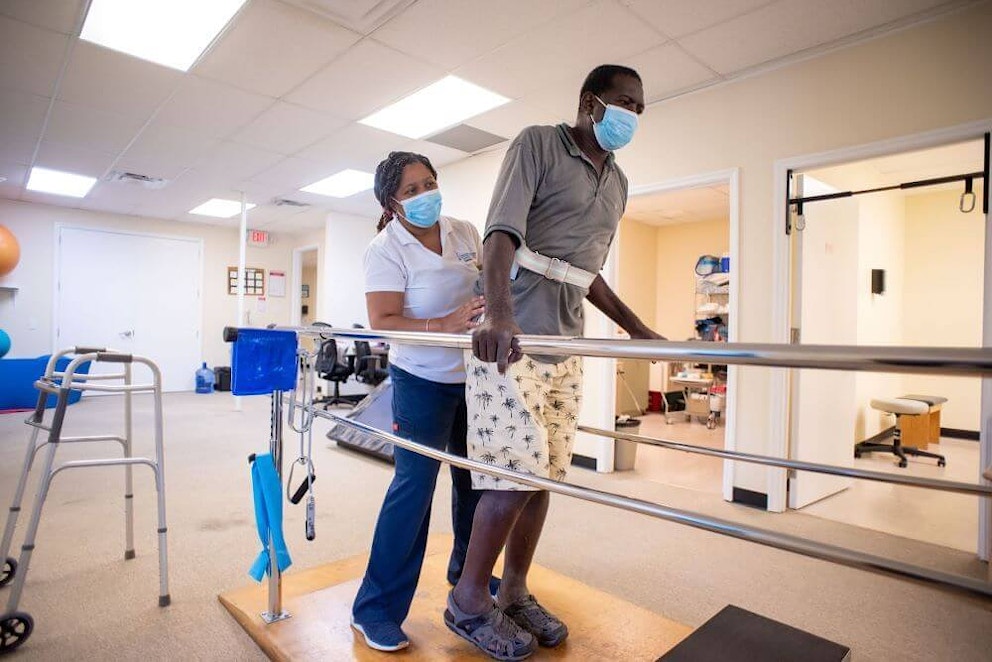Physiotherapy


Book an appointment
If you or your loved one would benefit from physiotherapy, please contact the Physiotherapy Team at 244-7675 or 244-2730.
Our Therapy Services are located at our Bay Town House location, 36 West Bay Road.
What is Physiotherapy
Physiotherapy is a form of treatment often used to restore, maintain, or improve a person’s movement and physical wellbeing.
Physiotherapy helps individuals suffering from prolonged pain, reduced movement, weak bones, joints and tissues, sports injuries, and other debilitating conditions. It can also be used as a practice to educate patients on improving their physical performance, avoiding injury, and maintaining physical well-being.
Conditions Treated
Although there are a variety of reasons as to why someone may see a physiotherapist, some of the main reasons include:
- Chronic illnesses that have affected one’s balance, mobility, or motor skills, such as diabetes.
- Post-surgery: if a limb or joint was affected or operated on, movement in this area is vital to proper rehabilitation, therefore physiotherapy can assist with accelerating the healing process.
- Ageing: as we age, we experience changes in our physical movement/ease of functioning. Physiotherapy can help educate such patients on how to improve movement in the areas they are concerned with.
- Injury: physiotherapy is often used to treat those recovering from sports-related injuries to manage pain, increase mobility, and educate on avoiding injuries in the future.
Most people are familiar with physiotherapy to manage back, joint and neck pain but there are also multiple other conditions that can be effectively identified and managed with physiotherapy. These conditions and treatment options, as listed below, are all available at the Health Services Authority through our highly trained staff who provide individualized assessments and management to maximize each patient’s recovery and functional return.
Types of Treatment/Rehabilitation
Amputee Rehabilitation
The goal of rehabilitation after limb loss is to ambulate successfully with the use of a prosthesis and to return to a high level of function within the community. HSA provides rehabilitation from pre-surgery through acute post-surgery, prosthetic prescription and training to community reintegration.
Lymphoedema Management
Lymphoedema is often the result of surgery (lymph node removal, mastectomies etc.) and radiation therapy for cancer. Other causes include trauma or infection of lymphatic system and severe venous insufficiencies. There are four Certified Lymphoedema Therapists who provide manual lymphatic drainage, compression bandages and garments and exercise prescription to manage symptoms.
Dry Needling
Dry needling is now offered as part of our physiotherapy services, providing a cutting-edge approach to pain management and recovery. This innovative treatment targets myofascial pain and muscle dysfunction, offering relief for individuals with chronic and acute pain, headaches, sports injuries, and post-surgical conditions. With 14 of our physiotherapists certified in this evidence-based technique, utilising precision methods like Instrument Assisted Soft Tissue Mobilization (IASTM) and Functional Integrated Dry Needling (FIDN), patients can experience enhanced mobility, reduced discomfort, and faster recovery times.
HSA Physiotherapists
Chickandarvin Chellaswamy Santha
George Town, Grand Cayman














